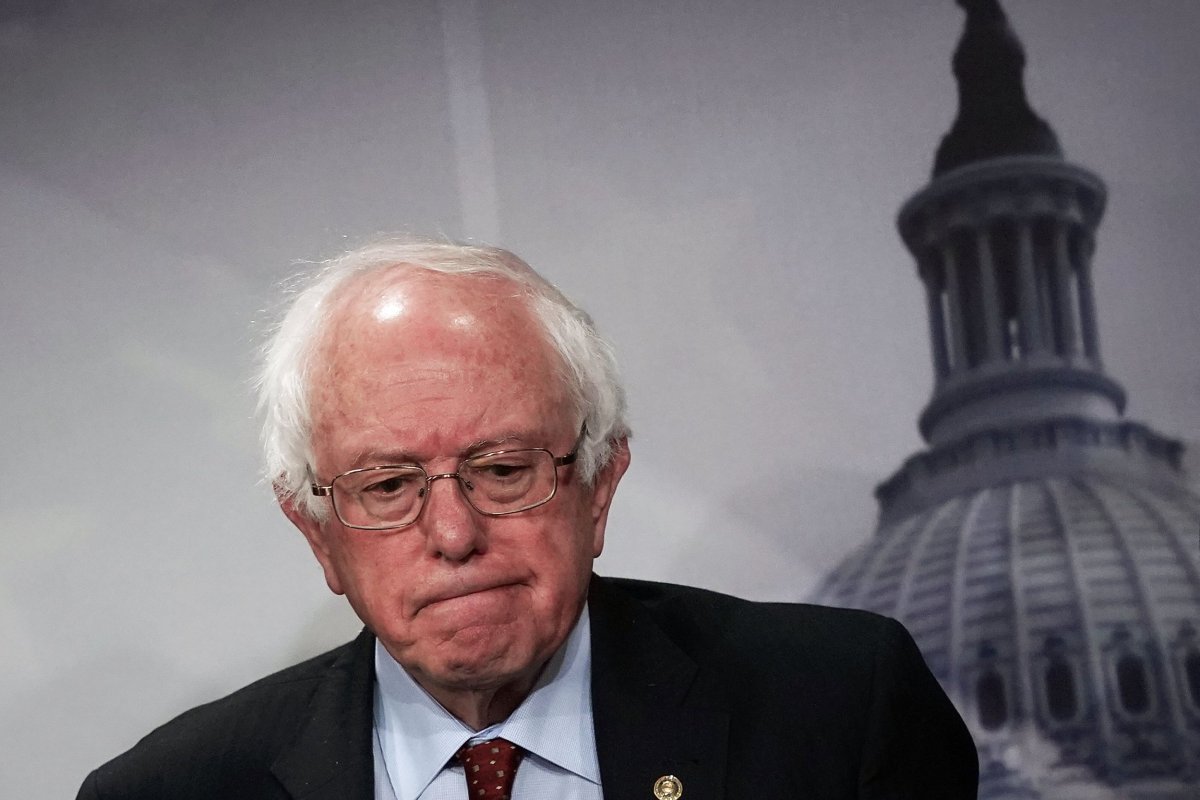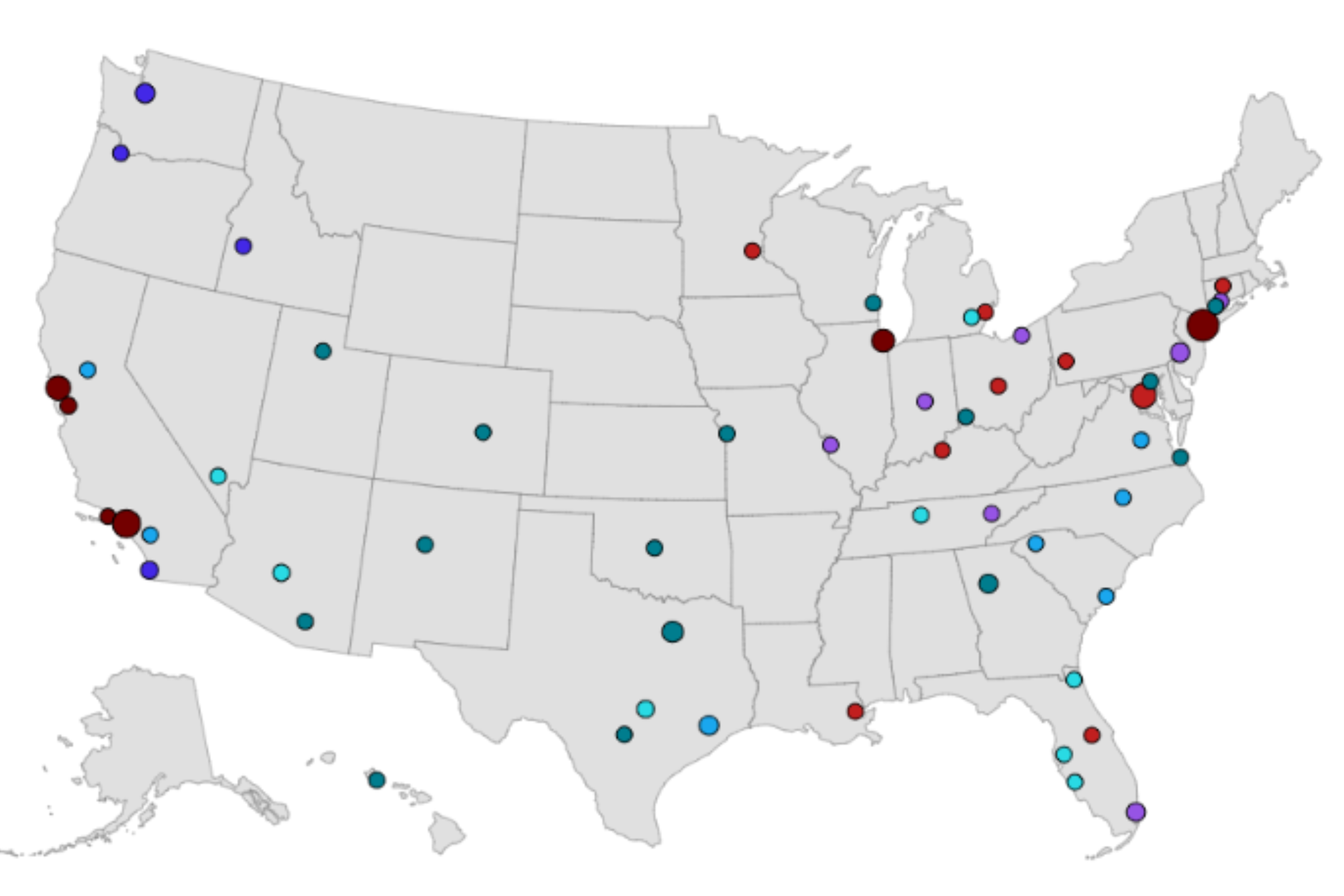The sore-loserism that's been a hallmark of progressive politics since Hillary Clinton's 2016 defeat has taken her party to the edge—and pushed it over. The Democrats, full of hubris over the prognostications of so-called experts who are certain they will retake control of the U.S. House of Representatives, have made a series of bad choices that can only be described as crazy.
Seriously. Look at the major campaign themes rising to the top of the list thus far. A promise to raise taxes, which would choke off the economic growth that's lifted the U.S. economy up off its back and brought minority unemployment to record lows. The abolition of the U.S. immigration service, making the United States borderless. Medicare for all to replace the failed Obamacare, at a cost, according to one recent report, exceeding $32 trillion over ten years. A prohibition on plastic guns made by 3D printers, when plastic guns are already illegal. And a ban on straws.
The New Frontier it ain't. Democrats who love Jack Kennedy and Franklin Roosevelt and Hubert Humphrey and Bill Clinton, or at least what remains of them, are shaking their heads in disbelief. At a time when a strong, centrist message would create the most difficult environment possible for suburban Republicans to win re-election, the party has lurched to the left so badly its prescriptions for what ails us defy belief.
It's not your father and mother's democratic party anymore. It's a Bernie Sanders party, enlivened by the activism of young people who think the promise of a free college education and the forgiveness of student loan debt are the most important things the federal government can do.Unlike the 60s radical, who they see as their antecedents and whose tactics they employ with increasing frequency, they're motivated by self-interest rather than altruism.
The further to the left the Democrats are perceived to go, the easier it will be for Republicans to displace them from the center and win re-election, especially in places just outside the larger cities where GOP candidates are most vulnerable because of the antipathy voters feel toward Donald Trump.
The president is not, as outgoing Ohio GOP Gov. John Kasich and a host of conservatives coming out of the "virtue-con" movement remind us at almost every turn, everyone's cup of tea. In public, he can be crass, insensitive, and something of a bully. Just as Obama could portray himself as "Mr. Cool," Trump comes across as "Mr. Hot." He's a fighter, and it's won him fans inside his own party while potentially alienating key sectors of the independent vote congressional Republicans need to have on their side in 2018. But not without cost.
It makes some people uneasy. The Democrats think they can focus their entire fall campaign on the rage they believe their base feels for Trump. But, as has been shown time and time again throughout the course of American politics, you cannot beat someone with no one. They must have an agenda. They must stand for something sensible if they hope to turn the GOP. What they've embraced thus far, however, is nutty to the point of being on the fringe.

Consider the campaign the national political media is running on behalf of Stacey Abrams, the first African-American woman to win a major party gubernatorial nomination. She's an inch or two from being an outright socialist, but we're supposed to believe she has a chance to win in conservative Georgia.
Going into November, the Republican campaign is building on the success of the tax cut that's revived the American economy. That makes sense. Jobs and the economy are still the top issues of concern to most Americans. They're offering the reality of economic opportunity against the illusion of economic security that Sanders and Nancy Pelosi and Chuck Schumer are offering.
Mostly because of how the money is flowing to individual races, prognosticators like the University of Virginia's Larry Sabato and the folks at The Cook Report, considered by many to be the gold standard in U.S. election tracking, are bullish on the Democrats' chance in the fall. No surprise there: they usually are, largely because they see only what they want to see, most of which only accounts for things that work for the Democrats and/or against the Republicans. They always make it right near the end—or at least they do most of the time—but the pro-Democratic drivel they put out influences campaign contributions and political coverage, which in turn drives more contributions and brings in the activists who do the work on the ground. It's a vicious cycle that's been in place for decades and, frankly, makes it something of a wonder the Republicans ever win anything.
Newsweek contributing editor Peter Roff is has written extensively about politics, culture, and the media for U.S. News and World Report, United Press International, and various other publications. He can be reached by email at RoffColumns@GMAIL.com. Follow him on Twitter @PeterRoff.
The views expressed in this article are the author's own.
Uncommon Knowledge
Newsweek is committed to challenging conventional wisdom and finding connections in the search for common ground.
Newsweek is committed to challenging conventional wisdom and finding connections in the search for common ground.
About the writer
To read how Newsweek uses AI as a newsroom tool, Click here.








